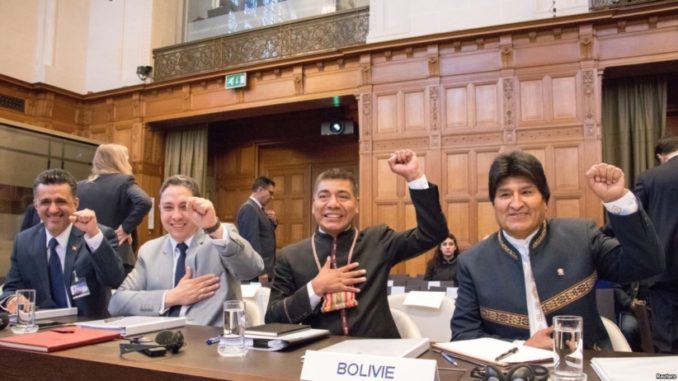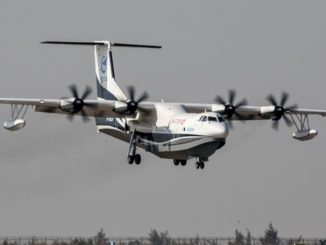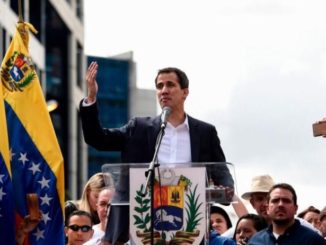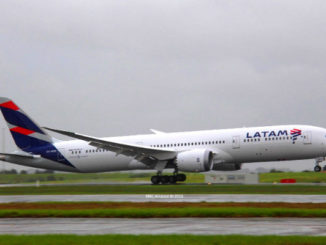
THE HAGUE – Delegates from Bolivia and Chile headed to the International Court of Justice in The Hague on Monday morning, where they presented their arguments over a disputed 380 kilometer coastline on the Pacific Ocean.
Relations between Bolivia and Chile have been historically strained over the territory dispute, which was instigated after Bolivia was defeated in the War of the Pacific 1879/1883, leaving the country landlocked. Bolivia’s ally Peru also lost some southern territory to Chile, which occupied Lima for a couple of years.
It remains unclear which way the ICJ will rule when it hands down a decision later this year.
For Bolivia, the only landlocked country in the world to maintain a navy, the disputed territory will grant access to the sea to enhance its exports of natural gas and minerals. For Chile, the world’s largest exporter of copper, the region contains some of its biggest mines. With economic prosperity on the line, any decision will likely be intolerable for one of the parties. Indeed, with no avenue for an appeal, expect relations between Bolivia and Chile to be further strained regardless of which way the court rules.
“For 139 years, Bolivia has suffered the historical injustice of becoming landlocked,” former president Eduardo Rodriguez Veltze told judges at the Peace Palace.
“Restoring Bolivia’s sovereign access to the sea would make a small difference to Chile, but it would transform the destiny of Bolivia.”
Chile argues that its border with Bolivia was settled in a 1904 treaty, but Professor Payam Akhavan, a lawyer representing Bolivia, said that, despite this, Chile had made repeated pledges to find a solution to the dispute.
Mr. Rodriguez said that Bolivia’s GDP growth could be a fifth higher if it had access to the sea.
The Bolivian delegation is headed by president Evo Morales, and includes two former presidents, the foreign and justice ministers and the chairs of the Lower House and the Senate, plus the team of Bolivian and international lawyers taking the case.
“We are going to make history, with the truth, with the law. We are convinced that justice for Bolivia will be achieved”, said president Morales.
From Santiago, president Sebastian Piñera said he had full confidence the International Court of The Hague will abide by international law, adding that “the presence of the Bolivian president will not affect what has to be done juridical”.
Una vez más se equivoca el Presidente Morales, y además, contradice abiertamente la tesis de Bolivia en La Haya. De acuerdo al tratado de 1904, Antofagasta ha sido, es y seguirá siendo chilena.
— Sebastian Piñera (@sebastianpinera) March 19, 2018
Piñera anticipated he will be going to Government House at 05:45, Chilean time, which is when the two delegations will begin presenting their arguments in The Hague.
Bolivia will make its presentations on Monday and Tuesday, while Chile will do the same on Thursday and Friday. The following week the two sides will have a one day to round up their positions, Bolivia Monday and Chile Wednesday.



